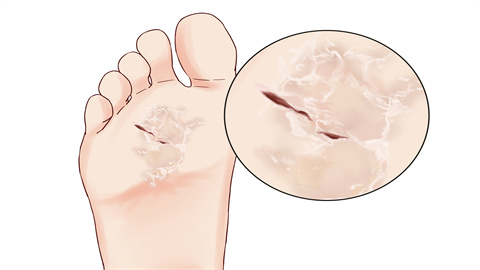How can patients with fissured eczema perform daily care?
Generally, patients with fissured eczema can manage their condition through dietary regulation, skin care, adjustment of environmental humidity, emotional and lifestyle modifications, and avoiding physical and chemical irritants. A detailed explanation is as follows:

1. Dietary Regulation
Patients should avoid consuming spicy, greasy, and irritating foods, such as chili peppers, Sichuan peppercorns, and garlic, as well as allergenic foods like seafood and red meat (e.g., beef and mutton), which may worsen the condition. Adequate intake of foods rich in vitamins, such as fresh fruits and vegetables, can help promote skin metabolism and alleviate symptoms.
2. Skin Care
Patients with fissured eczema often have dry skin, making moisturizing particularly important. It is advisable to apply moisturizing products such as body lotions or hand creams appropriately, especially after bathing or washing hands, to prevent moisture loss promptly.
3. Environmental Humidity Control
Maintain indoor humidity between 50% and 60%. Use humidifiers during dry seasons and avoid direct exposure of skin to air conditioning or heating vents. Wear loose, breathable cotton clothing and avoid synthetic fabrics or wool that may irritate the skin through friction. When washing clothes, use phosphate-free detergents and ensure thorough rinsing to minimize residual detergent and reduce skin exposure to irritants.
4. Emotional and Lifestyle Adjustments
Maintain a positive mood and avoid excessive mental stress. Appropriate relaxation techniques can aid in recovery. Establish a healthy and scientific sleep schedule, avoid staying up late, and ensure sufficient sleep.
5. Avoidance of Physical and Chemical Irritation
Avoid washing with hot water and frequent use of alkaline cleansers such as soap or dishwashing detergent. Wear cotton gloves when handling cleaning agents if necessary. Refrain from scratching or peeling dry, flaking skin to prevent infection. If itching is severe, gently pat the affected area or apply cold compresses to relieve symptoms and avoid mechanical irritation that may exacerbate inflammation.
Patients should also schedule regular follow-up visits so that doctors can adjust treatment plans promptly according to changes in their condition.







